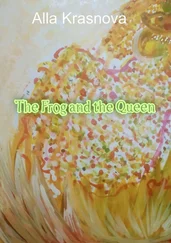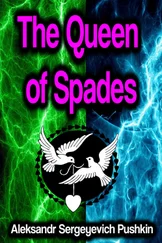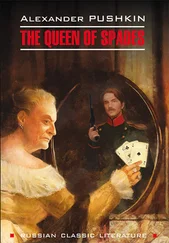I heard the clatter of heels on the parquet of the hallway outside. The door burst open. Beau McNair, in a slouch hat and a gray muffler, panting, pale-faced, took two steps inside, his face aimed at Lady Caroline like a weapon. But it was not Beau.
It was the young man I had seen in the barroom at the Bella Union, and whom I had seen appear out of the shrubbery here, night before last.
A shot convulsed the room. The hat on Elza Klosters’s lap exploded into the air, where it flopped and fell like a shot duck. George Payne toppled straight forward, arms extended, dropped with a crash and did not move again. Klosters rose, his smoking pistol in his hand. There was an acrid whiff of gunsmoke. I snatched Bierce’s revolver from my pocket.
I slammed it down on Klosters’s hand. He yelped and dropped his own weapon. He yelped again as I jammed the muzzle into his ribs.
“Tom!” Bierce called, as though I was a puppy who had misbehaved. “ Tom! ” Klosters stared at me with his catkiller eyes and his mouth open in a circle of pain, his right hand gripped in the other. I kicked his smoking gun under the chairs.
Lady Caroline had risen to stand looking down at her dead son. Beau moved to embrace her. She raised her chin, pointed her face to the ceiling, white as Bierce’s skull but so very beautiful. Marvins, holding a Navy .44, filled the doorway. Mammy Pleasant backed away from the body, crossing herself.
I could see the cheek of the Morton Street Slasher, furred with a short fair beard like Beau’s. The muffler had fallen open to reveal the two parallel scabs from Rachel LeVigne’s fingernails. His blue eye was open, staring into infinity; the unchosen boy, the abandoned child crazed by it; the son of James Brittain or Aaron Jennings or someone else, and of Caroline LaPlante. A tongue of dark blood seeped from beneath his side.
No one else seemed to understand that we had witnessed an ambush and an execution, or maybe they all did.
30
COGITO COGITO ERGO COGITO SUM – “I think that I think, therefore I think that I am”; as close an approach to certainty as any philosopher has yet made.
–THE DEVIL'S DICTIONARY
The headline in the Chronicle the morning I cleared out of my room at the Barnacles’ was SENATOR JENNINGS INDICTED. In the text he was referred to as the “Senator from Southern Pacific.” Bierce had struck his blow at the Railroad.
Jennings was indicted for the death of Mrs. Hamon.
The Slasher murders remained unsolved.
Jonas Barnacle helped me tote bags, boxes, books and a bottle of cucumber arnica down the rickety stairs. I glimpsed Belinda through a window and detached a hand from my load to wave to her, but she did not wave in return.
In my last mail on Pine Street was an announcement of the wedding, in the Trinity Episcopalian Church at Post and Powell, of Miss Amelia Brittain to Mr. Marshall Sloat. The reception would be held at the Palace Hotel.
Sloat was a childless widower, more than twice the age of his bride-to-be. I remembered Amelia commenting on Judge Terry’s age compared to Sarah Althea Hill’s. A fallen woman, she had called Miss Hill.
I left my buggy seat nailed to the wall in the Barnacle cellar.
In the editor’s office at The Hornet Bierce sat with Bosworth Curtis. He beckoned me to a chair, although I saw that Curtis disapproved.
“Lady Caroline is anxious that George Payne not be identified as her son,” Bierce said. “She has made an arrangement with Captain Pusey.”
“So Pusey got what he was after,” I said. I was having difficulty controlling my feelings, which Bierce thought not worth having. The chalky skull gaped at Curtis.
“Her daughter is engaged to a member of the British aristocracy,” Curtis said. “She is anxious to avoid scandal.”
I wondered if Curtis disliked favors done for the aristocracy as much as I did. I considered Bierce a sitting duck for a grand female like Lady Caroline Stearns.
Curtis unfolded a sheet of creamy paper.
“Lady Caroline thought it appropriate to show you this,” he said.
He handed the paper to Bierce, who studied it before passing it on to me. It was a list of Lady Caroline’s philanthropies.
Nathaniel McNair had conspired, cheated, swindled, strong-armed and bribed to control his mining properties and fleece the fools who gambled in mining shares to make his pile. Now his widow redistributed it with interest to the needy.
The item caught my eye: Washoe Miners’ Fund, $10,000. A miners’ fund in Wales was listed as well. There were funds for neglected children and for wayward girls. The Frances Castleman Home for Indigent Women in San Francisco had received $7,000. There were some twenty items, ranging from $20,000 to $500. About half were in England, half in San Francisco and Nevada, two in New York. The $20,000 was for the Sanctuary for Homeless Young Women in Cleveland. The total was a magnificent sum of money.
“Her secret is safe with us,” Bierce said.
“She will be grateful,” Curtis said, standing and refolding the paper. The shiny skin of his face gleamed pinkly.
“Her man Klosters may think he and I have uncompleted business,” I said. “Perhaps she would curb him.”
“It shall be done,” Curtis said. He clicked his heels and pitched his head at Bierce, with a little bow. He made a lesser bob at me and departed.
“So you let her off,” I said.
“You saw the list.”
“Fancy paper,” I said.
“She is well known for her generosity,” Bierce said.
It was true. “That was a murder,” I said stubbornly. “A door was left open, or the same window he got in before. It was a trap. He wasn’t even armed. How was it that he arrived there at just that moment? It was planned.”
“Tom, we have been over this too many times.” His forehead was creased with irritation as he gazed at me with his cold eyes. “Yes, perhaps Lady Caroline conspired to take the life of the madman who had conspired to take hers. She did not know he was her son.”
“She must have suspected it. Buckle certainly knew something.”
He sighed and said, “She told me that she did not.”
“You believed her because she is a grand lady.”
“Why this sympathy for Payne? He ripped the intestines out of three women. He would have killed Amelia Brittain if you had not stopped him. He had planned to murder Lady Caroline Stearns. He had effected her return to San Francisco, he had access to the McNair mansion. She was in danger.
“As I have said before,” he continued. “My concern was the murder committed by Senator Jennings. The Slashings were the proper province of the police. I only concerned myself with them to insure the indictment of Jennings.”
I turned back to my desk. I was at work on an article on the Chinese slave girls but, because of Mr. Macgowan’s anti-Chinese policy. The Hornet would probably not publish it.

Chubb had produced as a cover for The Hornet , a vast squid with its tentacles spread over California. Its eyes were medallions of the faces of Huntington and Stanford, so labeled. An enormous shining hatchet had chopped off one of the tentacles, labeled “Senator Jennings,” with an anguished medallion face of the Senator attached. The blade of the hatchet was labeled “Crime and Punishment.” The paper was full of the Jennings arrest, a long news piece by Smithers, replete with adverbs, my own sidepiece on the spite-fence. Tattle was loaded with self-congratulation and a lambasting of the Railroad so smug that if Bierce’s definition of self-esteem as “an erroneous appraisement” did not occur to me, it should have.
Читать дальше










